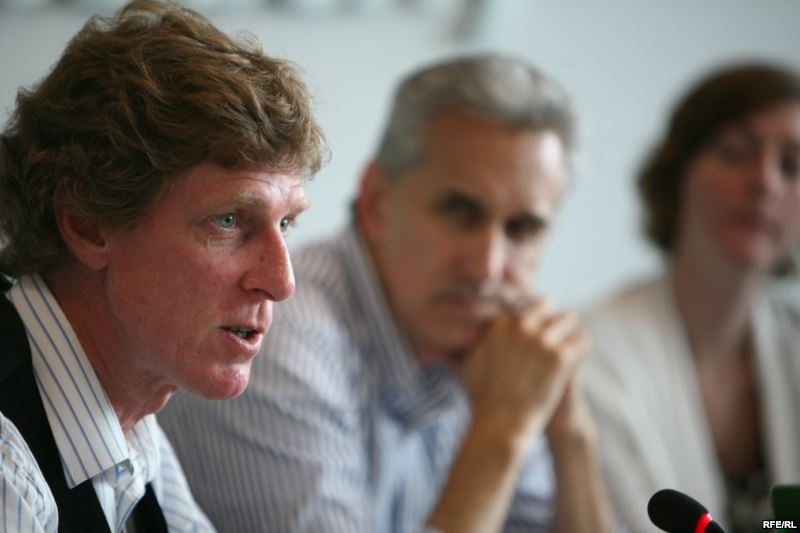Kazakhstan's anti-crisis measures crucial, expert says

By Aynur Karimova
Energy-rich Kazakhstan, the national economy of which has suffered a lot from decreasing oil prices on the world market, is keen on taking anti-crisis measures to prevent negative consequences of the global crisis.
In this regard, the government plans to develop a scenario of economic development of the country with the expectation that oil prices could fall to $20 a barrel.
Such a decision was taken after President Nursultan Nazarbayev instructed the government to develop such a scenario given the rapid decline in oil prices and volatility in the global markets.
The government also plans to allocate additional funds from the state budget to finance the operational anti-crisis measures. In 2016, these funds will amount to roughly 225.5 billion tenges ($615.5 million). These funds will be used to support employment and additional funding for the "Nurly Zhol" development program.
The developed scenarios will be discussed on January 19 at a meeting of the council on economic policy under the Kazakh government.
Bruce Pannier, an expert on Central Asia, and the Senior Correspondent at Radio Free Europe/Radio Liberty, believes the government's decision to develop new scenarios based on the economic reality in the world is important.
"It might be necessary to base the budget on an even lower price for oil. Otherwise, there is not much that can be done," he told Azernews.
Due to the fact that Kazakhstan depends on oil exports to support its economy, Astana cannot do anything to change the reality of falling oil prices on world markets. The country's two main trade partners - Russia and China - are suffering from the low price of oil and other economic problems and Astana cannot do anything about that either.
The expert believes that the Kazakh government will have to cut more programs and projects.
"There is already a plan on a massive privatization program, which will include major state industries – KazMunaiGaz, Kazatomprom, the national airline, the railway, and on and on, some 780 enterprises to be partially or completely privatized," he noted.
Meanwhile, Pannier believes that there is not much Kazakhstan can do "because most of the problems besetting the country are outside the Kazakh government’s control."
"Kazakhstan was warned years ago not to become dependent on oil exports, many other countries were warned also, and advised to diversify their economies," he said. "To the Kazakh government’s credit, some steps were taken. Although oil and ferrous and non-ferrous metals are still a major part of the country’s exports, Kazakhstan exports other things. Kazakhstan is one of the world’s top 10 grain exporters for example."
The expert is pessimistic about possible increase in oil prices on the world markets.
"Past that, the Kazakh government will just have to wait, and hope that oil prices rise. But officials should keep in mind that with Iran about to start selling its oil and gas on world markets, and with the advances in non-traditional resources – shale oil and shale gas – there is little chance we will see the record prices of more than $100 per barrel that we saw several years ago," he stated.
New Kazakh Mazhilis only to approve unpopular measures
Commenting on appeal of the members of Mazhilis of the Kazakh parliament to President Nazarbayev on holding early parliamentary election due to aggravated economic situation in the country, Pannier said a new Mazhilis will not be able to do anything different to prevent the bad consequences of crisis to the national economy.
"Some people have suggested Kazakh authorities want to hold an election now before the full extent of the economic crisis hits the country," he told Azernews. "I agree with that to some extent but I would point out the economic crisis has already hit Kazakhstan. It is likely crisis will get worse and it might become much worse but the situation is already bad. The [Kazakh national] currency, the tenge was being exchanged at about 185 to one U.S. dollar just six months ago and this week it was being exchanged at a rate of about 365 tenge to one U.S. dollar, double the rate of last June."
Pannier expects the new Mazhilis to maintain strong support for President Nursultan Nazarbayev’s policies, as the outgoing Mazhilis did.
"The new deputies are going to need to approve some tough and unpopular measures over the coming months to combat the effects of a slowing economy," the expert noted. "That process has already started. The current government has already reduced funding to a series of domestic programs, from state support for housing to financing the completion of upgrades and modernization of the country’s three oil refineries."
"So, a new Mazhilis "cannot do much and in fact, it will probably be responsible for approving unpopular measures to cut back on infrastructure projects, new or repaired roads, electrification projects, and home-heating," he stressed.
Under the Constitution of Kazakhstan, in case of early termination of the MPs’ powers, snap election should be set no later than within two months.
--
Aynur Karimova is AzerNews’ staff journalist, follow her on Twitter: @Aynur_Karimova
Follow us on Twitter @AzerNewsAz
Here we are to serve you with news right now. It does not cost much, but worth your attention.
Choose to support open, independent, quality journalism and subscribe on a monthly basis.
By subscribing to our online newspaper, you can have full digital access to all news, analysis, and much more.
You can also follow AzerNEWS on Twitter @AzerNewsAz or Facebook @AzerNewsNewspaper
Thank you!
